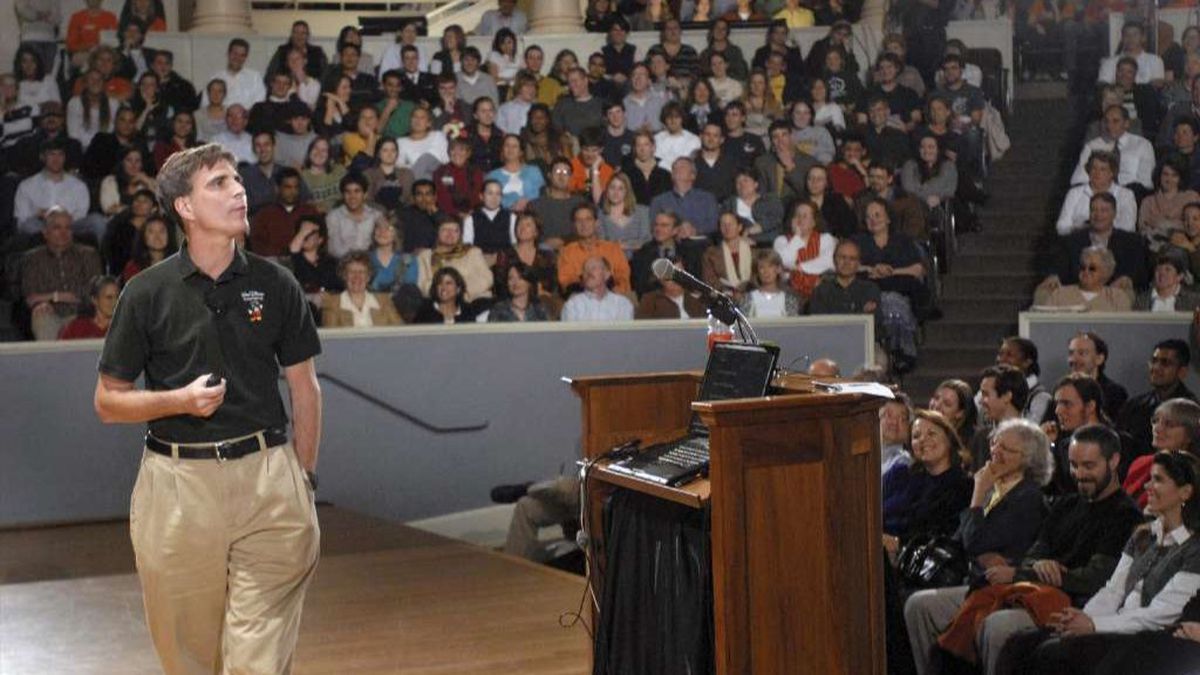Randy Pausch inspires with “The Last Lecture. PHOTO CREDIT: Contributed by The Chicago Tribune
In a quaint, local bookstore in Pittsburgh, a small, blue book caught my eye. “The Last Lecture” by Randy Pausch, a professor at Carnegie Mellon University. I hadn’t read a book in quite some time, so I decided to buy it. It was worth every penny.
In 206 short, yet powerful, pages, I was taken on a journey through a stranger’s life, but by the end, Pausch felt like anything but. Pausch was a computer science professor at the prestigious CMU in Pittsburgh, who sadly passed away in 2008 due to pancreatic cancer. His final acts were to share his life’s message in his “Last Lecture” at CMU and through this book.
Pausch starts off the book with an introduction to his life, highlighting his humble beginnings from where he grew up just outside of Baltimore, Maryland. He explored the various life lessons he learned at a young age, from his parents, teachers and football coaches. One of my favorite examples is a lesson from his former coach Jim Graham.
“When you’re screwing up and nobody says anything to you anymore, that means they’ve given up on you.”
This small quote stuck with me; it showed me that criticism can be tough, but in the long run, it will help you more than any compliment.
Pausch then highlights his schooling at Brown University and later CMU, along with the people that got him through it all with success.
“The Last Lecture” explores Pausch’s true passion, which was helping others. As an educator, Pausch made sure to help others find their spark in and out of the classroom.
The penultimate section is Pausch’s life lessons for his readers. These 30 anecdotal remarks, including “Dream Big,” “Look For The Best in Everybody” and “Loyalty is a Two-Way Street” taught me to better appreciate the world around me, and to look at my life with a new perspective and purpose.
The sentimental value of Pausch’s work cannot be understated. Throughout “The Last Lecture,” Pausch clearly demonstrates his love for his family, his occupation and living his own life, despite the challenges he faced.
The final few pages of the book, filled with pictures of Pausch’s life, really stuck out to me. They showed a man who had it all, family, friends and a strong career, and a life unfortunately cut short by cancer.
Pausch’s casual style is so genuine and real. His cynically humorous view of his life and his condition made this book so easy to read. The autobiographical nature of this book really allowed me to connect with the author. With each word, I felt that I got to know Pausch, as if he was my own professor or friend. His kindness, authenticity and humor all shined through his writing. The short chapters allowed me to finish this book in a matter of hours, yet I still think about all the life lessons that I learned from Pausch.
This book changed how I look at life. I appreciate the small things just a little more now, and I realized, “Time is all you have. And you may find one day that you have less than you think.”

